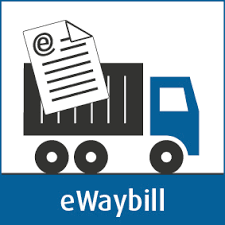- Business Startup
- Startup-Indian Entities
- Startup-Foreign Entities
- Business/Entity Conversion
- Business Registration
- Tax & ROC
- Yearly Tax Compliances
- Income Tax Return Filing
- ITR for Salaried Individuals/ Pensioner
- ITR for Capital Gain
- ITR for Companies
- ITR for House Property Income
- ITR for Income from Business
- ITR for Individuals having Share Trading
- ITR for NRIs and Resident with Foreign Income
- ITR for Partnership Firm/AOP/BOI
- ITR for Presumptive Income
- ITR for Speculation Business
- ITR for Trust, NGO and Companies
- Advisory on Tax Savings
- TDS Return Filings
- LTCG Filing and Advisory
- Income tax Notice Compliance
- Basic
- Standard
- Premium
- ITR for House Property Income and Other Source Income
- ITR for Capital Gain
- ITR for NRIs and Resident with Foreign Income
- ITR for Individuals having Share Trading or Casual Income
- ITR for Speculation Business
- ITR for Income from Business and Profession
- ITR for Presumptive Income
- ITR for Partnership Firm/AOP/BOI
- ITR for Companies
- ITR for Trust, NGO
- Advisory on Tax Savings
Yearly Tax Compliances
ITR for Salaried Individuals/ Pensioner
Income Tax Return Filing
- GST
- GST Registration (₹799)
- GST Accounting
- GST Return Filing
- GST Annual Return
- GST LUT Submission
- GST Taxpayer Registration
- GST Registration for Foreign Entity
- GST Registration Cancellation
- GST-Revocation of Cancellation
- GST Return Filing Packages
- E-way Bill Submission
- Ask an Expert-GST
GST Registration & Cancellation
- IPR
- Trademark
- Trademark Registration (₹5799)*
- Trademark (Individual) Registration
- Trademark with Logo Designers (Individual)
- Trademark with Logo Designers (Company)
- Trademark Objection Management
- Trademark Renewal
- Trademark Renewal (Company)
- MSME Compliance Trademark Registration
- Trademark Restoration
- Trademark Assignment
- Trademark Hearing
- Trademark Opposition
- Trademark Infringement
- Trademark Investigation
- Trademark Logo
- Copyright
- Copyright Registration
- Copyright Objection
- Computer Software Copyright
- Logo Copyright for Goods
- Songs Copyright
- Sound Recording Copyright
- Logo Copyright for Service
- Artistic Work/Painting Copyright
- Cinematography Copyright
- Copyright a Book
- Literature/Dramatic Copyright
- Music Notation Copyright
- Phrase/Slogan Copyright
- Symbol Copyright
- Patent
- Design
Trademark
- Trademark
- Compliance
- LLP Annual Compliance
- Winding up of Inactive LLP
- LLP Winding up by NCLT
Initial Compliance
General LLP Compliance
Changes in company
LLP Annual Compliance/ Closure
- Pay Roll
- Company
- Blog
Get your business incorporated at the lowest price with compliance to regulatory requirements of Ministry of Corporate Affairs. Register a company today to get funding and tax benefits.
Sole Proprietorship
Sole Proprietorship
- Overview
- Document Required / Details of the product
- Process
A sole proprietorship is the simplest form of business structure that is owned, managed, and controlled by the sole owner. The sole proprietorship is not a legal entity rather it just refers to a sole person who owns the business and is personally liable for its debts. This is one of the most popular forms of business structure for micro and small businesses operating in the unorganized sectors due to its simplicity ease information and nominal cost.
However, a Sole proprietorship is generally not suitable for the medium-scaled and large scale businesses due to the array of disadvantages like unlimited liability, no separate legal entity, non-transferability, and limited life of the business.
The government of India has not prescribed any mechanism for the registration of a sole proprietorship firm. Thus, the registration of a proprietorship can only be recognized through tax registrations that the business is required to have as per the rules and regulations. These tax registrations may include GST Registration that must be obtained in the name of the Proprietor to establish that the Proprietor is operating a business as a sole proprietorship.
Taxcomate is a leading legal consultancy firm providing comprehensive services relating to company incorporation, Our expert team will provide you full-fledged assistance required for the seamless registration of sole proprietorship firm.
Frequently Asked Questions (FAQs)
What is a Proprietorship?
A proprietorship/sole trading firm is a business that is owned and run by an individual person. The owner and the business are treated one and same. Proprietor is personally liable for all business debts i.e his personal property may also be used to repay business debts.
Proprietorships are not regulated by any particular Act, hence there is no registration. Every buiness needs registration under Shop & Establishment Act whether it is providing a service or dealing in goods. Other registrations such as GST etc depend upon nature of product/service.
I am a sole trader. Do I need TAN registration?
TAN is Tax Deduction and Collection number which is needed if you are responsible for deducting tax at source on behalf of Income Tax Department. It is also quoted in various challans, returns etc. Not every proprietor is required to get a TAN unless it is required due to the nature of his business or profession. ClearTax expert will advise you if you need to obtain TAN
Is there any guideline on choosing name for the Sole Proprietorship firm?
The name of the firm should not contain any words which indicate the approval/support of the government unless the government has given its written consent for the use of such words as part of the firm’s name. The name of the firm can be reserved by getting trade mark registration.
What is the objective of the Shops & Establishments Act?
Every Indian state has enacted certain rules and regulations with regard to conditions of work. The objective is to secure uniform benefits for employees working in different establishments, from shops, commercial establishments and residential hotels to restaurants, theatres and other places of public amusement or entertainment.
When is a Shops and Establishments Act license required?
Every shop and establishment needs to register itself compulsorily under this Act within 30 days of commencement of work. As this is such a basic license, many other licenses require this as proof of a commercial business. For example, most banks will require you to furnish it if you want to open a current account.
What are the records to be maintained under the Shops and Establishment Act?
Under the Shop and Establishment Act, every business has to seek approval from Department of Labour and keep up-to-date registers regarding details of employment, fines, deductions and advances, salary and holidays. The requirements may vary from state to state. Files related to annual holidays and number of employees need to be submitted to the office of the Municipal Corporation annually.
Which are the specific cities where the service will be delivered?
The service is state specific in case you need a shop license and will be rendered only in specific cities being Mumbai, Gurgaon, Hyderabad, Kolkata, Jaipur, Surat, Bangalore, Chandigarh, Pune and Delhi.
What is GST and GSTIN?
Goods and Services Tax(GST) is a comprehensive tax levied on manufacture, trade and services across India. From 1st July, 2017 GST has replaced most of Centre and State imposed indirect taxes like VAT, Service Tax , Excise etc. Goods and Services Tax Identification Number (GSTIN) is a 15 digits state-wise PAN-based number to be used to identify businesses registered under GST. Click here to know your GSTIN.
I need to get my business registered in multiple locations within Maharashtra. Do I need to apply separately for each location?
If you have multiple places of businesses in same state, you can get them all registered under a single GST registration application. Give the name of your registered business place as primary place of busienss, the other branches can be added as additional places of business at no additional cost. There is no limit on number of branches that you can add under a single GST registration application, provided all the branches are in same State.
I registered my business under GST in August 2017. When do I need to start filing GST returns?
Every registered person under GST needs to file GST returns for the period starting from the time he got registered or the date when GST got implemented(i.e 1st July)[WHICHEVER IS LATER] . If your business is registered in GST in August, you need to file return for period starting from 1st August, 2017.
Required Documents for Sole Proprietorship Registration
In regard to the Sole Proprietorship Registration, the following documents are needed:
- Copy of PAN Card
- Identity Proof (Voter Card, Passport, Driving Licence)
- Address Proof (Bank Statement, Mobile bill, Telephone bill)
- Passport Size Photo.
Sole Proprietorship Registration
₹2,299.00
Sole Proprietorship in just 7 to 10 Days
Never let the businessman see down by giving your small business a shining name with Sole Proprietorship registration. It is extremely easy to start and run!
Why choose Company registration in INDIA ?
-
Shields from personal liability and protects from other risks and losses.
-
A registered company makes it genuine and increases the authenticity of your business.
-
Procures bank credits and good investment from reliable investors with ease.
-
Offers liability protection to protect your company’s assets
-
Greater capital contribution leading to greater stability of business
-
Increases the potential to grow big and expand the business


























